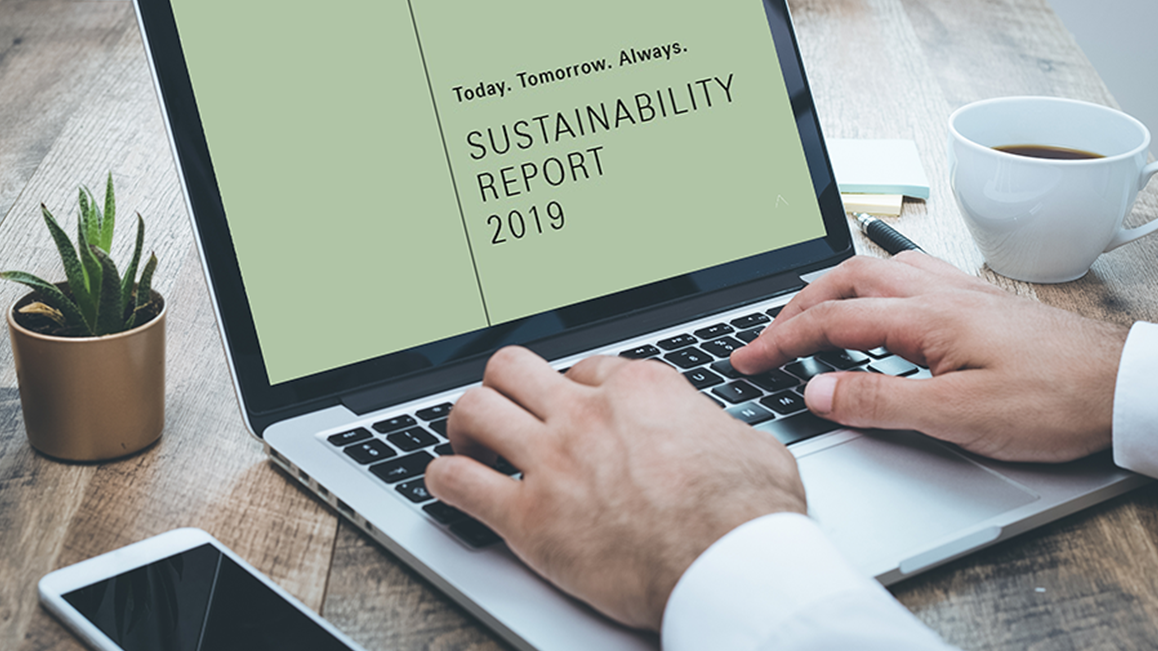May 2020 – HUGO BOSS has published its seventh Sustainability Report. Following the claim "Today. Tomorrow. Always.” we are not only looking back at what we have already achieved and the principles we have always stood for, but also focusing our attention on what’s next and thus on our future sustainability goals. What we have achieved today must be developed one step further tomorrow.
Important milestones achieved in 2019
In the past year, we have reached important milestones, including in the area of product sustainability. This includes the first "Traceable Wool" capsule collection under BOSS, which enables seamless tracking of the garment along its supply chain. In addition, we launched the first "RESPONSIBLE" styles made from Olivenleder®. We also further increased the proportion of sustainable materials in our products: by 2019, 61% of the cotton we used came from sustainable sources. Other important milestones were the start of our cooperation with the "Cotton made in Africa" initiative; the disclosure of our data in the Open Apparel Registry, the information platform on textile and apparel factories; and the annual HUGO BOSS Stakeholder Dialog. HUGO BOSS also made progress in climate protection last year, for instance reducing CO2 emissions by 18%. In addition, the company received various awards and certifications in 2019 – including the Corporate Health Award – and was again listed in indices such as the Dow Jones Sustainability Index.
Looking ahead
HUGO BOSS has set itself ambitious sustainability goals for the future. In particular, the focus lies on climate protection, the use of sustainable materials, compliance with social standards in the supply chain, continued responsible management of chemicals, and a commitment to society, including in the areas of education and professional development. In the interests of climate protection, HUGO BOSS will reduce CO2 emissions along the entire value chain by 30% by 2030. In addition, 100% of the cotton will come from sustainable sources by 2025. Moreover, our declared goal for 2025 is only to purchase goods from finished-goods suppliers who achieve satisfactory or better results in social audits.
Further detailed information on our commitment can be found in our current sustainability report.
